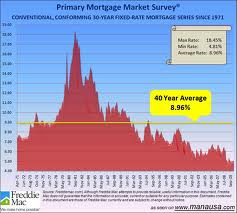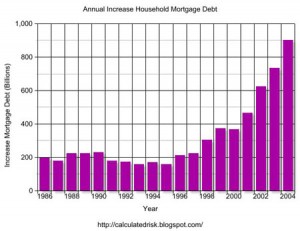A north country story
 A few years ago, just after the housing bubble burst, I ran into an old friend of mine who is a real estate agent in St. Lawrence County. We were talking about the economic disaster caused by large banks buying, packaging and re-selling thousands and thousands of mortgages, often without the traditional safeguards regarding prospective home owner financial capacity, accurate valuations of homes being bought, and so forth. She said she regularly saw agents of national mortgage companies driving around the north country to check out properties before issuing loans to buyers. Or, rather, she saw their “drive bys”–zipping past a house to establish that it existed, but nothing more. No wonder dicey loans were extended across the country. My local bank visited and inspected my farm twice before even issuing a home equity loan (for about 1/5 the value of the house).
A few years ago, just after the housing bubble burst, I ran into an old friend of mine who is a real estate agent in St. Lawrence County. We were talking about the economic disaster caused by large banks buying, packaging and re-selling thousands and thousands of mortgages, often without the traditional safeguards regarding prospective home owner financial capacity, accurate valuations of homes being bought, and so forth. She said she regularly saw agents of national mortgage companies driving around the north country to check out properties before issuing loans to buyers. Or, rather, she saw their “drive bys”–zipping past a house to establish that it existed, but nothing more. No wonder dicey loans were extended across the country. My local bank visited and inspected my farm twice before even issuing a home equity loan (for about 1/5 the value of the house).
Fast forward four years. Today, this piece in Pro Publica (the online investigative journalism publication)–a list of some of the largest fines levied against the banks that, among other things, engaged in questionable mortgage practices.
I went to the website of the National Association of Realtors and found a very basic list of 10 questions to ask before settling on a mortgage loan. And, on a related topic, check out Joanna Richards’ story on federal concern about financial scams and fraud perpetrated on members of the military, particularly around mortgage deals.
Here’s a link to a substantial wikipedia overview article on mortgages.
I’m curious about smaller banks located in northern New York and Vermont. Were any of these cited for similar nefarious activity, albeit on a smaller scale? I’m digging…but if you have any articles or links to recommend, please do.










Much of the problem could have been/would be avoided if there were a law that required “once you make a loan, you are stuck with it.” This idea of buying and selling loans was and is a problem.
I know for a refi 18 months ago I had to pay an extra $500 fee because of people who offered or people who took mortgages they could not afford. I had about 60% equity in the property.
My bank charges a higher interest to keep the mortgage in-house with no points or will sell the mortgage for a much lower rate. The bank is NY based with a PA division.
The banks are not the only ones responsible in this mess. A lot of people bought too much house. A lot of “realtors” benefited by inflated house values and easy mortgages.
Jeff–Good point about the interest rate difference between local holding of mortgage vs. shopping it out to non-local banks. And, yes, certainly everyone had a role to play in the debacle–however, some players were superstars, others had supporting roles, cameos and walk-ons, eh?
A friend got a mortgage locally a few years before the housing bubble burst. At closing the bank official said, “This may not mean anything to you, but we do not sell our mortgages.” It really says it all.
We are really fortunate our housing situation is relatively stable here. We were visiting a family member in Las Vegas. Someone in real estate told us that there were 23,000 vacancies in Las Vegas. The real kicker is that the LV banks are sitting on another 40,000 foreclosed units for fear of totally crashing housing prices. I also saw online that Rochester NY has a vacancy rate of 20%. The North Country seems to have an increasing number of empty houses (along 190 between Ellenburg and Malone, also 11B between Malone and Potsdam), but don’t know if it foreclosures or declining population.
Selling a mortgage (or any commercial paper) is not a bad thing in itself. As with my bank, they retain the service & escrow part of the transaction even if they do not keep the mortgage. Whether a bank can retain the mortgage depends on its own investment goals and how much money it has on hand. If it loans out a million dollars and it has to borrow to replace that money and the next million it borrows is more expensive they could be worried. And if the loans they make are at fixed interest vs. adjustable and inflation increases their expenses they won’t like the financial return (neither will their share holders).
But retaining a mortage may make a lender more inclined to be thorough about its lending practices.
This doesn’t address your question of smaller banks but HSBC sold a lot of its branches and Community bought a number in communities where they already have multiple offices. That tells me it is not for the purpose of customer service at the street level but for the accounts and lines of business they acquire. That reminds me of a company I know who last year switch banks because the old relationship at HSBC wasn’t as comfortable as it had been.